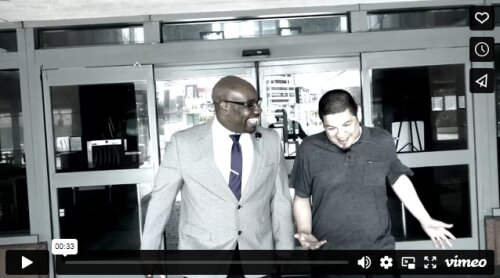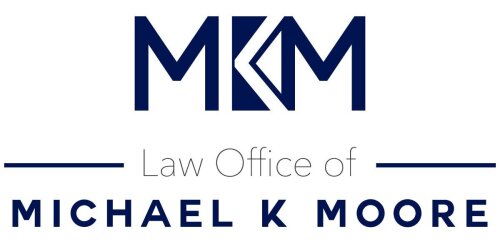Best Debt & Collection Lawyers in California
Share your needs with us, get contacted by law firms.
Free. Takes 2 min.
Or refine your search by selecting a city:
List of the best lawyers in California, United States
About Debt & Collection Law in California, United States
Debt and collection law in California safeguards both consumers and creditors when it comes to collecting or recovering money that is owed. This area of law deals with the rules and responsibilities for individuals or businesses trying to collect debts, as well as the rights of those who are being asked to pay. California has its own specific set of regulations that work alongside federal laws such as the Fair Debt Collection Practices Act (FDCPA), with additional protections and requirements for all parties involved.
Why You May Need a Lawyer
There are several circumstances where reaching out to a lawyer for debt and collection matters in California is beneficial. Common situations include:
- Receiving persistent or harassing calls or letters from collectors
- Facing lawsuits over unpaid debts
- Experiencing wage garnishment or threats regarding asset seizure
- Needing help to negotiate a debt settlement or payment plan
- Suspecting errors or fraudulent activity in your debt records
- Assisting with bankruptcy filings or understanding debt relief options
- Dealing with credit report inaccuracies related to collections
- Understanding your rights if a collector violates state or federal rules
A lawyer can provide vital guidance, represent you in negotiations or court, help protect your assets, and ensure your rights are respected throughout the process.
Local Laws Overview
California’s debt collection laws are shaped by both state and federal guidelines, but California offers extra protections for consumers. Noteworthy aspects include:
- California Rosenthal Fair Debt Collection Practices Act: This law applies to original creditors as well as third-party debt collectors. It prohibits harassment, threats, false statements, and other unfair collection practices.
- Statute of Limitations: In California, most written contracts (including credit card debts and loans) have a four-year statute of limitations. This means creditors can generally sue to collect within four years of the last payment or written acknowledgment of the debt.
- Wage Garnishment Limits: California restricts the amount that can be garnished from your paycheck, usually limiting it to the lesser of 25 percent of disposable earnings or the amount by which your earnings exceed 40 times the minimum hourly wage.
- Credit Reporting: Debt collectors must provide accurate information, and you have the right to dispute debts listed on your credit report.
- Debt Collector Licensing: Since 2022, most California debt collectors must hold a state license, providing an added layer of accountability.
Understanding local regulations is critical whether you are trying to collect a debt or are being pursued for repayment. These laws are designed to balance the rights of creditors with strong consumer protections.
Frequently Asked Questions
What is considered a debt collector under California law?
A debt collector includes anyone who regularly collects debts owed to others, such as collection agencies, attorneys, and sometimes original creditors. In California, both original creditors and third-party collectors must comply with certain rules about debt collection practices.
Can a debt collector contact me at any time?
No, debt collectors are restricted in when and how they can contact you. They cannot call before 8:00 a.m. or after 9:00 p.m. and must avoid inconvenient times or places. They must also honor written requests to stop communication.
What should I do if I am being harassed by a debt collector?
Keep a record of all communications, gather evidence such as letters or voicemails, and consider sending a written cease-and-desist letter. If harassment continues, you can file a complaint with the California Department of Financial Protection and Innovation or seek legal advice.
How do I dispute a debt?
You can send a written dispute to the collector within 30 days of being notified of the debt. The collector must then verify the debt before continuing collection efforts. Always keep copies of your correspondence.
What happens if I ignore a debt collector?
Ignoring debt collectors does not make the debt disappear. It may result in legal action, such as a lawsuit or wage garnishment. It is better to address the situation, even if you cannot pay, by seeking advice or negotiating payment arrangements.
Can my wages be garnished for unpaid debts?
Yes, if a creditor sues you and wins a judgment, your wages could be garnished. California law limits the amount that can be withheld, offering some protection for workers.
How long can a debt collector sue me for a debt?
Under California law, most debts based on written contracts must be sued for within four years of the last payment or acknowledgment. After that, while collectors may try to collect, they generally cannot use the courts to enforce payment.
What rights do I have if a collector violates the law?
You may be entitled to sue the collector for damages and attorney fees if your rights are violated by unlawful collection practices. Documentation and timely legal advice are important to protect your rights.
Will paying off a collection account remove it from my credit report?
Paying a collection account does not remove it from your credit report in California, but it will show as paid. Unpaid collections typically remain on your credit report for up to seven years.
Can I negotiate my debt with creditors or collectors?
Yes, you have the right to negotiate payment plans, settlements, or even reduced amounts. Any agreement should be in writing. Legal assistance can help ensure fair terms and your interests are protected.
Additional Resources
If you need further assistance or want to learn more, consider these resources:
- California Department of Financial Protection and Innovation (DFPI): Provides oversight and handles complaints related to debt collectors.
- California Attorney General’s Office: Offers consumer information and may take action against abusive debt collectors.
- Legal Aid Societies: Provide free or low-cost legal help for those who qualify.
- National Foundation for Credit Counseling (NFCC): Offers debt counseling and educational materials.
- Federal Trade Commission (FTC): Administers the FDCPA and provides consumer resources.
Next Steps
If you are experiencing debt or collection issues in California, consider the following steps:
- Collect all documentation related to your debts, such as collection letters, court papers, and payment records.
- Review your rights under state and federal law as outlined above.
- Contact the creditor or collector if you wish to verify the debt or discuss payment options.
- Consult with a qualified debt and collection lawyer, especially if you face legal action or suspect your rights have been violated.
- If eligible, seek help from a local legal aid organization.
- File complaints with appropriate agencies if you believe a collector is acting illegally.
Taking these steps can help you protect your rights, resolve your debts more effectively, and minimize the stress associated with debt and collection matters.
Lawzana helps you find the best lawyers and law firms in California through a curated and pre-screened list of qualified legal professionals. Our platform offers rankings and detailed profiles of attorneys and law firms, allowing you to compare based on practice areas, including Debt & Collection, experience, and client feedback.
Each profile includes a description of the firm's areas of practice, client reviews, team members and partners, year of establishment, spoken languages, office locations, contact information, social media presence, and any published articles or resources. Most firms on our platform speak English and are experienced in both local and international legal matters.
Get a quote from top-rated law firms in California, United States — quickly, securely, and without unnecessary hassle.
Disclaimer:
The information provided on this page is for general informational purposes only and does not constitute legal advice. While we strive to ensure the accuracy and relevance of the content, legal information may change over time, and interpretations of the law can vary. You should always consult with a qualified legal professional for advice specific to your situation.
We disclaim all liability for actions taken or not taken based on the content of this page. If you believe any information is incorrect or outdated, please contact us, and we will review and update it where appropriate.
Browse debt & collection law firms by city in California
Refine your search by selecting a city.















